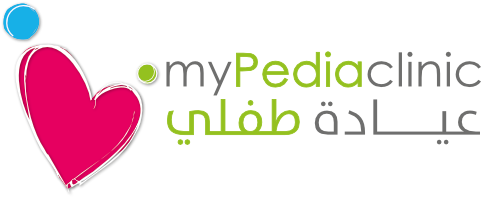As new mothers, you’ll adore the empowering feeling of being able to feed your developing baby. In all honesty, you’ll adore how stunning it is. The best food for your baby’s growth and development is breast milk. Each mother makes it specifically for her individual child. Breast milk is simple to digest and has the ideal ratio of protein, carbs, fat, vitamins, and minerals for your baby. Breastfeeding brings you and your infant closer together and is incredibly miraculous . It is only one of many things you may do to create a safe and enduring connection. As your child gets older, cuddling with your baby might help them become more trusting and self-assured.
When it comes to feeding your infant, there is no limit to the number of breastfeeds. Responsive feeding is the practice of feeding your baby whenever they request. It’s the greatest approach to feeding and caring for them. There’s also no requirement to stick to a feeding schedule. If you allow your infant to take the initiative, they will eventually develop their own routine. Your baby will develop, become stronger, and become more adept at taking larger feeds as a result of being fed by you. You will notice that they have started taking lengthier feeds around two months.
How is Breast Milk produced?
You produce colostrum for the first few days after delivery, which is a superconcentrate. It is jam-packed with healthy nutrients including protein and lipids. These encourage your baby’s growth and contain defence mechanisms. Additionally, because colostrum is so simple to digest, your baby can become accustomed to eating. The third or fourth day after giving birth is when your genuine breast milk will start to appear; it will be whiter and more liquid-like than the colostrum.
When your baby seems reluctant to eat or has eaten less than normal, it can be quite tempting for you to push them to finish that last bit of milk or give in to the need to feed them more. It is important to understand that your baby may be able to tell when they are full; their appetite may change on different days or from feed to feed. You risk teaching your baby to reject their body’s indications and develop the habit of overfeeding if you consistently encourage them to keep eating even after they appear full. As a result, you must be aware of your baby’s fullness.
5 signs your baby is getting enough breast milk
- Your baby is gaining weight: No later than forty-eight hours following hospital discharge, make an appointment with the best pediatrician in Dubai or family doctor for your newborn’s first checkup. To determine if your baby is receiving enough milk from feedings, the weight check at that appointment will be helpful. Your baby’s weight may change over the first few days or weeks of life. By the third or fourth day, a newborn may drop 5-7 percent of his body weight and be normal. Your baby should regain his birth weight by day 10. If they lose 10 percent or more, visit your pediatrician in Dubai.
- Your baby is swallowing: Your baby will suck quickly when they first latch onto your breast, which aids in milk release. Then, as they swallow, they should move into a slow, deep-pulling motion; you may feel this motion and also see their jaw drop and hear them do it. If your baby isn’t getting enough milk, you could notice that he sucks quickly but doesn’t swallow gently and rhythmically; they also might take extended breaks from nursing or frequently doze off at the breast. During sucking, your baby’s cheeks remain rounder rather than sunken and they appear peaceful and at ease. After eating, their mouth appears to be wet, which is a sign your baby is well-fed.
- Your baby is content: For an average of one to three hours between feedings, they appear full and satisfied. After feedings, your infant automatically removes themselves from the breast indicating they’re full. On the other hand, a baby who is too sleepy or, conversely, who cries out for meals frequently may not be getting enough milk. There may be an issue if a baby has to nurse often, less than an hour apart, or has many feedings that take longer than an hour.
- Your baby’s diaper is healthy: Your child’s poop is a trustworthy sign that they are consuming enough milk. Your baby will frequently poop after each feeding for the first month of life as your milk production rises. The hue of the stool matters as well. The first bowel motions are frequently dark and sticky, they should turn green or yellow by days three or four. The stool should also have a seedy or watery nature. Your infant is most likely to have only two or three wet diapers in the first 48 hours. If a disposable nappy is moist, it can be challenging to tell. Take an empty diaper and add 2 to 4 tablespoons of water to get an idea. You’ll know what to look for and feel for as a result. By five to seven days, there should be six or more wet diapers per day with practically colourless or pale yellow urine. Wet diapers should start to appear more frequently around day 5, with at least 6 heavy, wet diapers per day.
- You feel good: After feeding, your breasts feel softer. Your nipple still appears to be mostly the same; it is not flattened, pinched, or white. You might feel relaxed and tired.
Nurse your baby at least eight to twelve times every twenty-four hours. Call a kids specialist in Dubai or a lactation consultant straight away if you think you aren’t producing enough milk or that your baby isn’t gaining weight as it should.
How to increase your supply of breast milk?
Here are a few tips for breastfeeding mothers to improve their milk supply:
- Ask your midwife or breastfeeding professional to monitor your baby’s feeding. In order to place and secure your infant to the breast appropriately, they can offer you advice and support.
- For the first six months, refrain from giving your infant formula bottles and wait until breastfeeding is established before giving them a dummy.
- Feed your baby as frequently and as long as they desire.
- In the initial weeks after your baby’s birth, it is advised to switch between breasts. As you build a steady supply of milk, this helps to stimulate the production of breast milk.
- Hold your infant skin-to-skin and keep them close to you. By doing this, you’ll be able to identify your baby’s feeding signals before they even start to scream.
- Ensure that you are eating a balanced diet, drinking plenty of water, and not skipping any meals. Additionally, make an effort to consume fruits and vegetables that are naturally high in water content.
- Simply said, a typical, healthy, balanced diet rich in fruits, vegetables, and whole grains is the healthiest diet for a breastfeeding mother. After eating broccoli, cabbage, or beans, if your infant seems gassy, cut back on those meals.
- Additionally, make sure you get as much rest as you can in between feedings.
- The volume and fat content of your milk may be increased with breast massage. Massage your breast towards the chest and then a bit further towards the nipple while your baby is calming and comforting themselves more than drinking. Then, wait for your baby to take a few sips. Next, rub a different part of the same breast as you wait for further swallows. Repeat the same.
Find other new mothers who are breastfeeding so you can support one another. Ask them for advice. Whether it is your mother, a friend, or your grandma. Stay away from people who are critical of you for breastfeeding or who make it difficult for you to nurse if you’re feeling vulnerable when you’re establishing your milk supply.
myPediaclinic healthcare team is the best resource for guiding you to the best methods and options for your motherhood journey. Consult our experienced pediatricians for advice.
myPediaclinic – the best Pediatric clinic in Dubai
Our experienced award-winning Pediatricians at myPediaclinic in Dubai Healthcare City help you navigate life with a new baby by guiding you with the best breastfeeding techniques and offer support and advice on how to maintain a healthy milk supply. Our best Pediatricians in Dubai play a vital role in promoting the health and well-being of both mother and baby. Plus, we also help mothers understand the importance of breastfeeding and provide information on its many benefits for both mother and baby.




